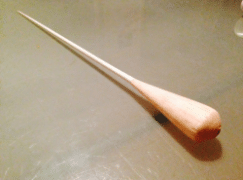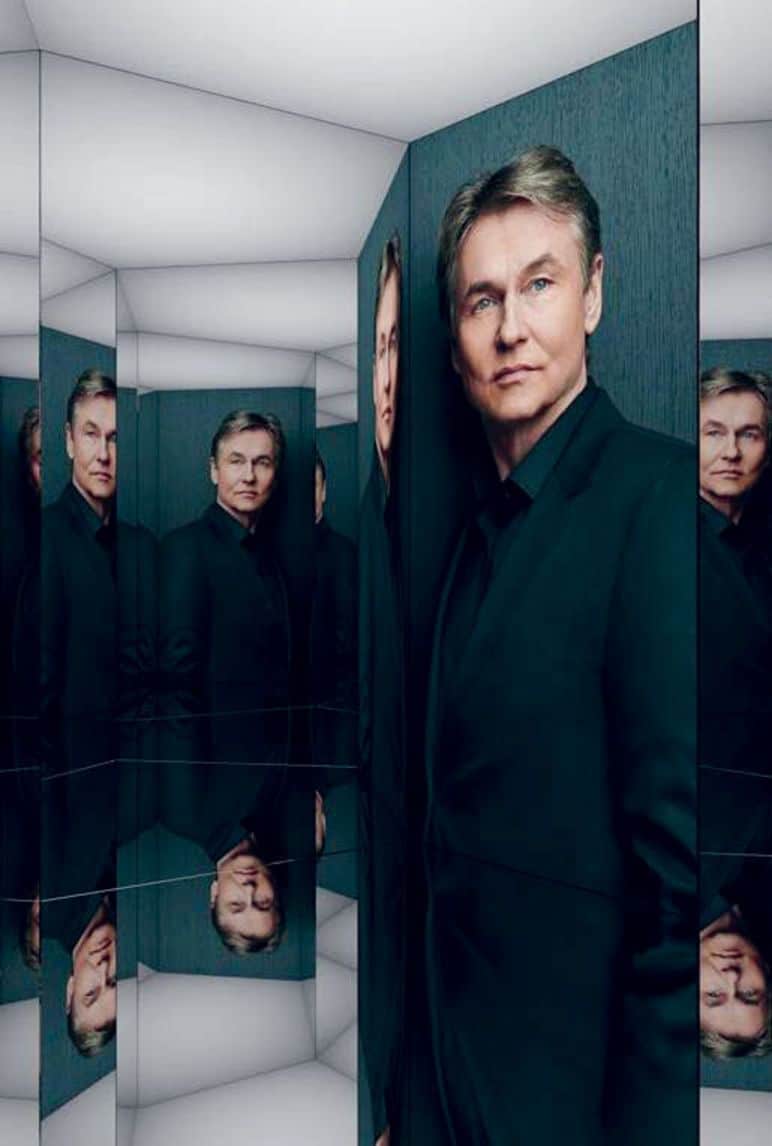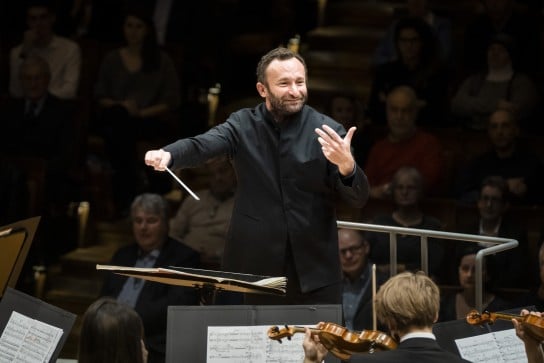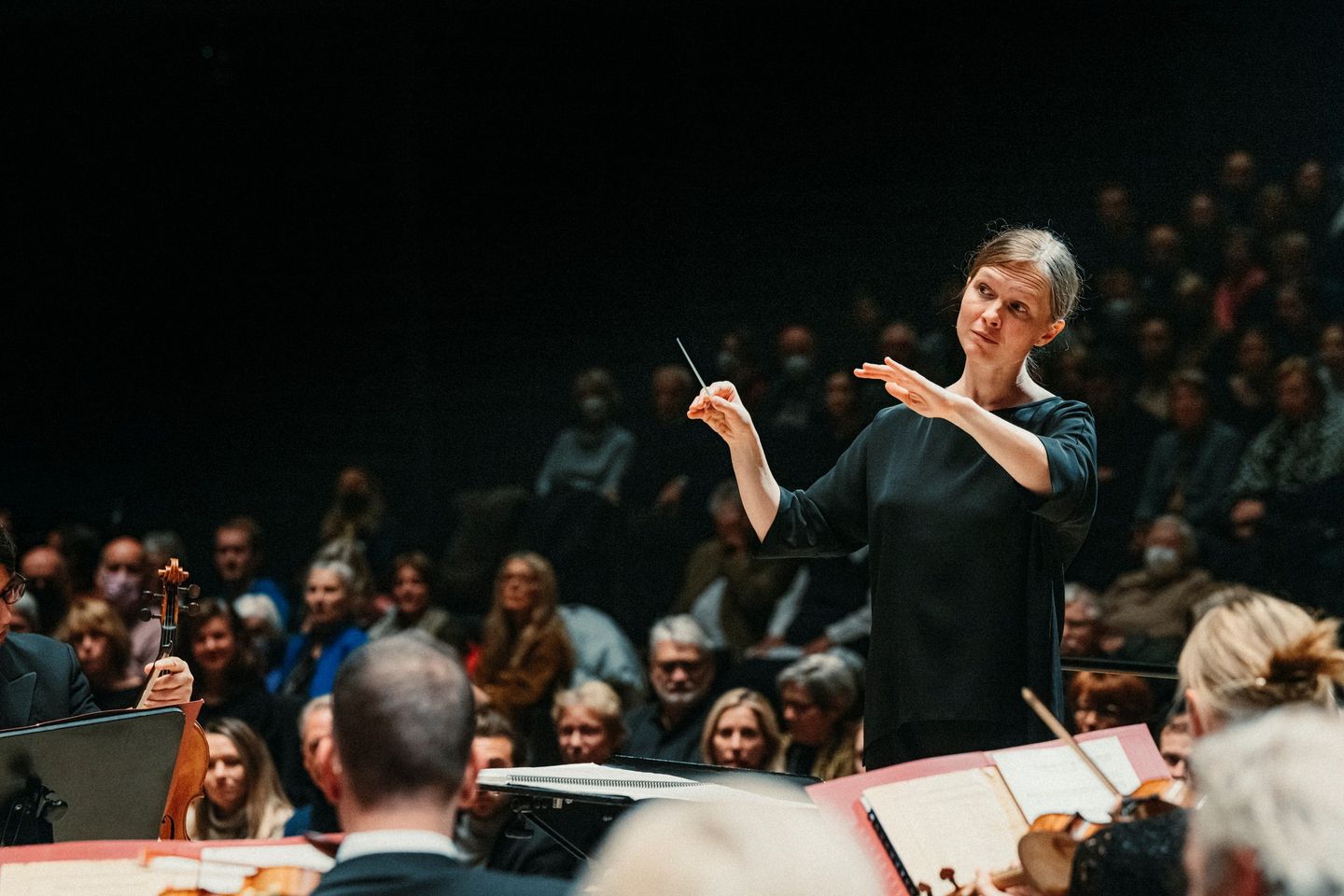BBC moves half of classical output up north
NewsThe Corporation announced a major shift in the broadasting of classical music. At least half of Radio 3 will come from Salford, near Manchester, and the remaining orchestras will also be run from the north.
No-one has discussed the cost of executives shuttling up and down the rails and sleeping broken nights in Londn hotels.
Here’s the press release:
As part of the BBC’s ambitious Across the UK strategy, BBC Radio 3 today confirms a raft of programme moves to Salford as the network strengthens its base there. This supports the BBC’s vision to create a UK-wide classical music hub in the North, maximising new partnerships and opportunities, reaching out to new audiences and diversifying voices heard on the station.
As a result, by 2024/25 at least 50% of production hours for BBC Radio 3 will be from Salford. In addition to this Radio 3 move, Simon Webb – recently announced as the BBC’s first Head of Orchestras and Choirs – will be based there from January 2023, and the incoming new Controller of Radio 3 and BBC Proms, to be announced, will spend their time across both London and Salford bases.
Alan Davey, Controller of BBC Radio 3, says:
“Strengthening Radio 3’s roots in the North of England, with a continued and important presence in London, will ensure the station holds its place at the forefront of leading and developing classical music and culture for the whole of the country. We hope to support and develop a wider pool of established and emerging talent, and build new partnerships with different communities in the North as well as with the wider classical music industry.”
A total of eight programmes will move their production from London to Salford by Autumn 2024: Music Matters, Jazz Record Requests, Essential Classics, Through the Night and Sunday Breakfast. The Listening Service and Afternoon Concert – both currently partly based in Salford – will move the entirety of their production and Words and Music will also increase its Salford production. Some programmes made by independent producers, such as Unclassified have already made the move.
The move builds the existing creative Radio 3 community in Salford, creating a new hub of excellence for classical music rooted in the North. Radio 3 will continue to commission from a range of suppliers in different parts of the UK.
As part of the BBC’s Across the UK plan, announced by the BBC’s Director General Tim Davie in March 2021, we are moving programmes and stations away from London so that we can better reflect, represent and serve all part of the country. BBC Radio & Music is contributing to the BBC-wide strategy across its portfolio by committing to spending 50% of network spend outside London, creating a single base for BBC Asian Network in Birmingham and rooting both BBC Radio 3 and Radio 6 Music in Salford. We’ll also have programmes, teams and events in range of different locations, including Radio 2’s Early Breakfast Show and BBC Audio’s Science unit in Cardiff, Radio 4’s Feedback being produced in Scotland and Radio 1’s new afternoon show coming live from Salford.






I live in the North and I don’t mind where radio programmes are made as long as they are good. Radio 3 needs to address its decline in intellectual and artistic standards generally, and its increasing number of irritating presenters and focus on diversity at the expense of quality in particular.
Are they taking ENO with them?
No, they have Opera North touring, once ENO North!
Every time you guys talk about ENO I think of Brian! Like, uh-oh, where’s he going, and what’s wrong with him?
(W1A says): this is how we spin it: first the centenary “good” news, then in the new year come the cuts.
Level up in order to level down”.
Another win for Aventi West Coast, or whoever ends up running it, and British Airways as the suits scuttle from Langham Place and that place ‘near Manchester’. Alternatively they could maybe car share with the few ENO exiles should they condescend to travel to somewhere outside the cordon sanitaire of the M25.
Where does it say ‘the remaining orchestras will also be run from the north.’ Big news if true, but I can’t find a source for it anywhere.
I think it means that what remains of the BBC orchestras will be run from the north.
Get ready for a massive culture influx to the North, and with it, London’s housing prices. Soon your kids will be competing with crypto bankers to buy a house in Burnley.
If the culture and politics of the UK’s capital city are increasingly similar to what’s happening in various American cities, such as NYC, SF or LA/Hollywood, then if devotees of the BBC don’t want it further compromised, maybe a move to smaller or other cities where Cancel Culture isn’t as much of an issue will be helpful.
Yes, the New York Philharmonic could move to Albany and be the whole state’s orchestra…
Or Elmira. That would be democratizing!
I wonder what kind of absent minded fool would look at a media network run by Tim Davie, noted Tory, and accuse it of succumbing to “cancel culture”
Nothing is remotely similar to any part or history of America so don’t even go there!
Yeah, but those of us in the US don’t understand how a distance of only a couple hundred miles makes any kind of difference — like it’s a big statement to move that close away!
That’s your problem! Every part and county of England that you consider so small, has a different culture, a different accent, and very different scenery to admire.
As the orchestras are staying put as far as I’m aware, I’m not sure what this will achieve. Will the BBCSO be playing more “northern music” and will the BBCPO be playing more “extreme northern music”, for instance?
If you work from a desk, does it matter where you are? Sounds like a stunt to me, but then we live in an age of meaningless stunts.
I think that you may have cracked this conundrum Barry.
Another ludicrous plan to solve a problem which doesn’t exist: to reduce the need for executives to work from one office location, whilst unsettling all other employees and musicians just to keep them on their poorly paid toes.
==we live in an age of meaningless stunts.==
Well said
These moves invariably involve the human aspect of comsulting the whole family not just one lone individual working.
Or working from home these days.
Bearing in mind that the BBC is the British Broadcasting Corporation, not the English Broadcasting Corporation, it is clearly absolutely absurd to describe Manchester as ‘the North’. Manchester is a quick afternoon’s drive from London. Just on 200 miles. Manchester is not even ‘the North’ of England. London to Berwick-on-Tweed by the shortest route is just under 350 miles. The splendid location of Wick, in Caithness, which really is Northern (mainland) Britain, is 660 miles from London.
Depends where one is standing. Head north out of London and the road sign says ‘The North’. Perhaps it says much the same heading north from Manchester. [I’ve only been there by train.]
Not that many studio facilities in Berwick or Wick though…
The whole country is so small, these distinctions are laughable.
They’re not laughable if you would understand or get a sense of history. We are not the United States of Britain!
Not far from half way there are the excellent Royal Scottish National, the BBC Scottish Symphony and the superb Scottish Chamber Orchestra. Perhaps the BBC mandarins have assumed they too have to please the ACE’s directives – hence Salford is as good as anywhere in “north”. Bit close to the territory of the Halle and Manchester , though.
ACE = Arts Council England, and nothing to do with Scotland. They have their own arts council north of the border.
Being from California here, yeah, it’s a joke.
Entirely agree that the problem with R3 – and why I play so many more CDs – is quality. But BBC neglect the fact that ambitious people wish to be in London – whether musicians or managers.
I’m old enough to remember when ambitious people didn’t need to be in London. Decades of neglect of elsewhere whilst London prospered has brought about a situation when things like this latest wheeze by the BBC, ditto ACE/ENO, shows what it is. Patronising tokenism.
Or perhaps ambitious people need to be in London because all the opportunities are concentrated there. It is one of those chicken and hen issues.
Germany has lots of regional hubs, our regions have been in relative decline for over one hundred years while people complain of the London cost of living.
That most certainly is not the case. If anything, the reverse is true. Writing from Glasgow, I know any number of superb musicians who various Orchestras and Agents have tried to ‘lure’ South, without any success.
CDs all recorded and pieced together. Nothing replaces live music for me or recordings of live concerts.
I echo the other commenters: the output is so poor generally they could broadcast it from John o’ Groats for all the difference it would make as they will still never know me as a regular listener.
Excellent idea. Listeners won’t be aware of where the sound comes from just glad there is still a R3. Executives don’t need to shuttle on Avant Worse than Most they can zoom etc.
I just don’t get it. It is the radio – it comes out of the speak of your radio, tablet, phone. Who realises, knows or cares where the programme is originating? As we found during lockdown, it could be your brrom cupboard, as long as the acoustic is ok. An office can be anywhere. An orchestra generally needs to play in a concert hall or studio. There are currently Cardiff, Glasgow, London and Manchester based orchestras. So apart from utilising new studio and office facilities in Salford, Broadcasting House and possibly Stratford, what changes, other than more expenses for staff shuttling between them?
Couldn’t agree more, sonicsinfonia.
If it were a question of the BBC using our licence fees to train, and give employment to, people who are out of work, then that’s very worthy. But if they say that this move will maintain the present ‘quality’ of Radio 3 then that’s a real problem.
On the other hand, this move North might mean that we’ll hear lots of George Formby and Gracie Fields on Essential Classics, which would cheer us all up amid the present doom and gloom and be a welcome improvement on the drivel they churn out at the moment.
All that’s left of the former Radio 3 is Composer of the Week, the Afternoon Concert and the one in the evening. But like others in this thread I gave up R3 long ago and prefer to listen to my own CDs, tapes and, yes, even vinyl LPs – remember those?
You forgot Choral Evensong, but your point is well made!
I’d love to think that more George Formby is the kind of diversification they’re talking about. I somehow doubt it, unfortunately.
Wherever the BBC wants to make its domicile for whatever it provides for classical music lovers or anything else is for me hugely irrelevant. Today I took the tube to Wigmore Hall for a concert. Now I’m streaming music on Qobuz though my stereo hifi system. If I wish I can stream 20+ classical radio Internet stations from around the world through the same system. BBC press releases are banal propaganda.
“… the BBC’s vision to create a UK-wide classical music hub in the North, maximising new partnerships and opportunities, reaching out to new audiences and diversifying voices heard on the station“.
The person who wrote this nonsense probably got paid more than the musicians.
It’s all about contentless PR these days.
Typical BBC humbug propaganda Newspeak. I listen to at least 20 classical music internet radio stations on 2 Roberts Internet radios and my hifi stereo system.Many have no talk at all & others are in languages I don’t understand. This saves me from whatever nonsense they might wish to convey.
Does anybody but the BBC think moving Radio 3 programming to Salford is going to improve it?; It’s absurd virtue-signalling for the sake of it. Of course, the Pandemic proved that you can broadcast from anywhere, but London remains the cultural centre of Britain, whatever the BBC may think, it certainly isn’t Salford, and the idea that you could attract international artistes by busing them up to Salford for live programming is away with the faeries.
Who would want to move to a dump like Salford anyway?
Well on the evidence of the commuting by current BBC ‘talent’ very few who are paid to pretend that Salford has a place in their hearts. Incidentally Salford is as much a ‘dump’ as many of the less salubrious parts of London where they are classed as ‘edgy’.
Will musicians have to commute back and forth, or have to move there? How will young musicians know where to live, in London or Salford?
London as there is far more work down there. Then settled with family and frkernds, and often grandparents childminding for both working spouses or partners to consider and kids in southern schools. Can’t just move north!
I don’t disagree with some of the comments to the effect that it would be better if the BBC concentrated on improving the quality of programmes, but some of the comments here about “the North” are incredibly patronising and ignorant. Same with the ENO debate – whatever the rights or wrongs of the decision, the attitude of the metropolitan luvvies is incredibly annoying.
The non-existent ‘attitude’ that touchy Northerners automatically attribute to Londoners on the basis of no evidence whatever? That attitude?
Well, there was the very distinguished mezzo who stopped only a nanometer short of asking where people would park their whippets when they went to the opera, and who implied there were no good music schools in the north – which must be news to RNCM.
Glad you called it Salford and not Manchester, as Manchester it ain’t! It’s Media City! I saw the lovely BBC Studio 7 being built in the 80s on Oxford Road, Manchester, conveniently opposite a main line train station making Leeds andbother northern cities accessible to Manchester along the road from the old Free Trade Hall replaced later by the newer Bridgewater Hall, and the RNCM, Manchester the other side of the road. Then the BBC decided to demolish Studio 7. BBC now in the Styx of Salford and a dodgy tram ride. Presenters on Radio 3 travelling up from London who never moved up there. What was a jump in the car for five miles from Hampstead for one now a two-day jaunt on trains and trams plus an overnight stay in Salford! Progress!
Concentrating yet more in Salford does nothing to connect music or culture to the wider North. If that was the purpose, they should use Hull, Middlesbrough, or Doncaster, perhaps Sheffield, or Barnsley. This is likely to be driven by the cost accountants.
Brand new “head of orchestras and choir” (English groups only..I thought that was part of the remit of controller R3??)…salary plus perks @ over 150,000 British pounds p.a.
Delivering “value” for all.
Don’t most arty people in the north want to go south? They don’t want to be stuck there!
So what’s wrong with the south? And it’s like what, just a couple hundred miles? Less than SF from LA.